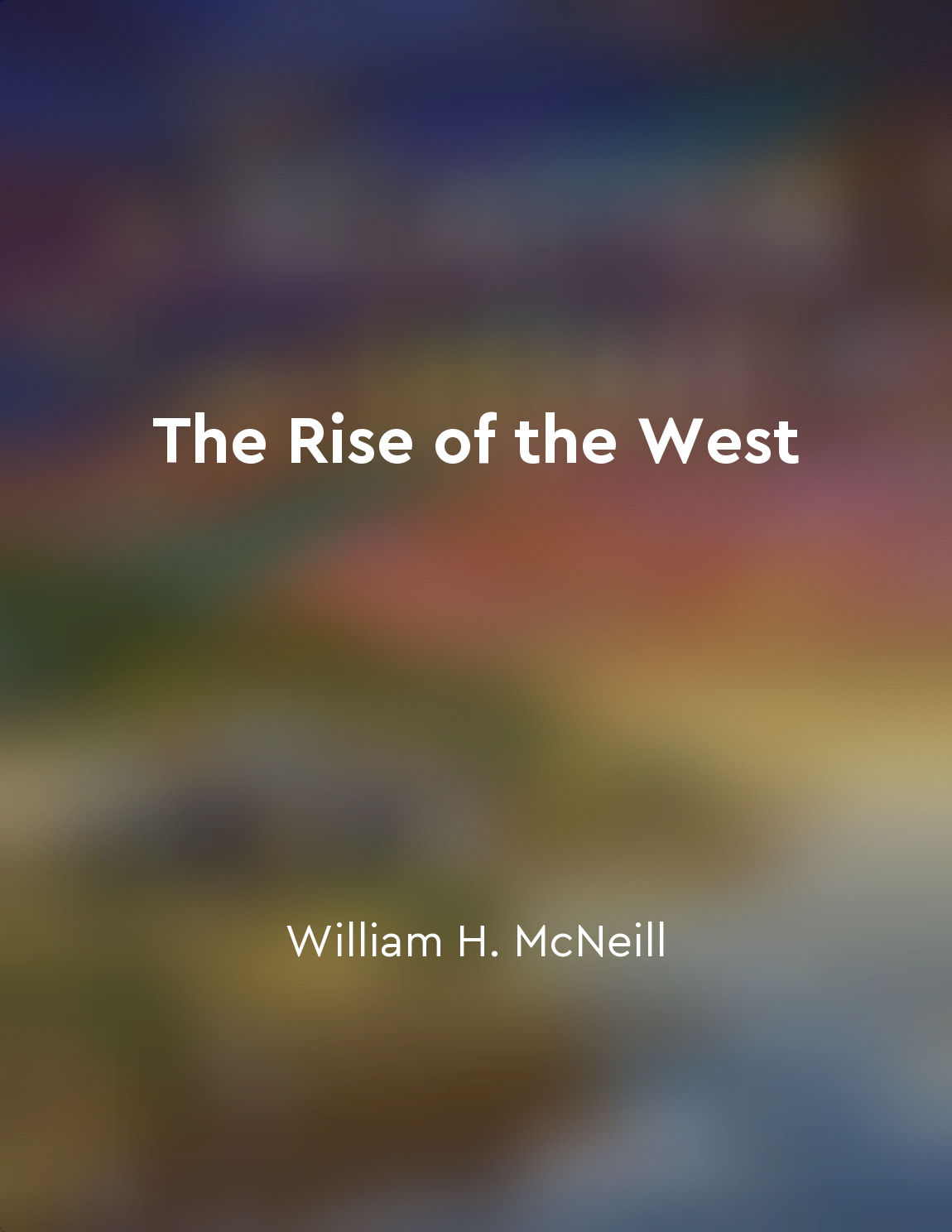Spengler critiques Western values from "summary" of The Decline of the West by Oswald Spengler
Oswald Spengler challenges the fundamental values of Western civilization, questioning their validity and sustainability in the face of historical evolution. He argues that the traditional values of the West, such as individualism, rationalism, and progress, have led to the decline of the culture and are no longer relevant in the modern world. Spengler believes that these values are rooted in a specific historical context and are not universal truths that can be applied to all human societies. According to Spengler, Western civilization is in a state of decay because it has lost touch with its organic roots and has become too focused on materialistic pursuits. He criticizes the obsession with progress and technological advancement, arguing that these pursuits have led to a loss of spiritual and cultural depth. Spengler sees a disconnect between the values of the past and the values of the present, leading to a sense of emptiness and disillusionment in Western societies. Spengler also challenges the idea of individualism as a cornerstone of Western civilization, arguing that it has led to a fragmentation of society and a breakdown of communal bonds. He believes that the emphasis on the individual has eroded the sense of collective identity and purpose, leading to a sense of alienation and isolation among individuals. Spengler advocates for a return to a more holistic understanding of society, where individuals are connected to each other through shared cultural values and traditions. Furthermore, Spengler critiques the Western focus on rationalism and scientific progress, arguing that this has led to a narrow and limited understanding of the world. He believes that Western civilization has become too reliant on reason and logic, neglecting the intuitive and spiritual aspects of human experience. Spengler calls for a more balanced approach that integrates both rational and irrational modes of thought, in order to achieve a more holistic understanding of reality.- Spengler's critique of Western values is a call for a reevaluation of the core principles that have guided Western civilization for centuries. He challenges the prevailing assumptions about progress, individualism, and reason, urging a more nuanced and complex understanding of human culture and society. Spengler's work serves as a provocative reminder that the values we hold dear may not be as universal or timeless as we once believed.
Similar Posts
The decline of Christianity weakens Western values
The erosion of Christianity in the West has profound implications for the values that have underpinned Western civilization for...
Spengler warns of impending catastrophe
Spengler posits that civilizations have a life cycle similar to that of living organisms, with an inevitable rise and fall. Jus...
Political correctness stifles debate
The imposition of political correctness on Western societies has had a chilling effect on public discourse. Any discussion outs...

Technological advancements lead to societal inequalities
Technological advancements, while contributing to the overall progress of society, have also been a source of societal inequali...
Popper rejects the idea of historical inevitability
Popper firmly opposes the notion that history follows a predetermined course, arguing against the belief in historical inevitab...
Historicism presupposes that history follows a preordained path
Historicism, as a theory of history, asserts that historical events can be predicted based on certain laws or patterns that gov...
The decline is irreversible
The decline of a civilization is a gradual process that unfolds over centuries, like the wilting of a flower or the fading of a...

